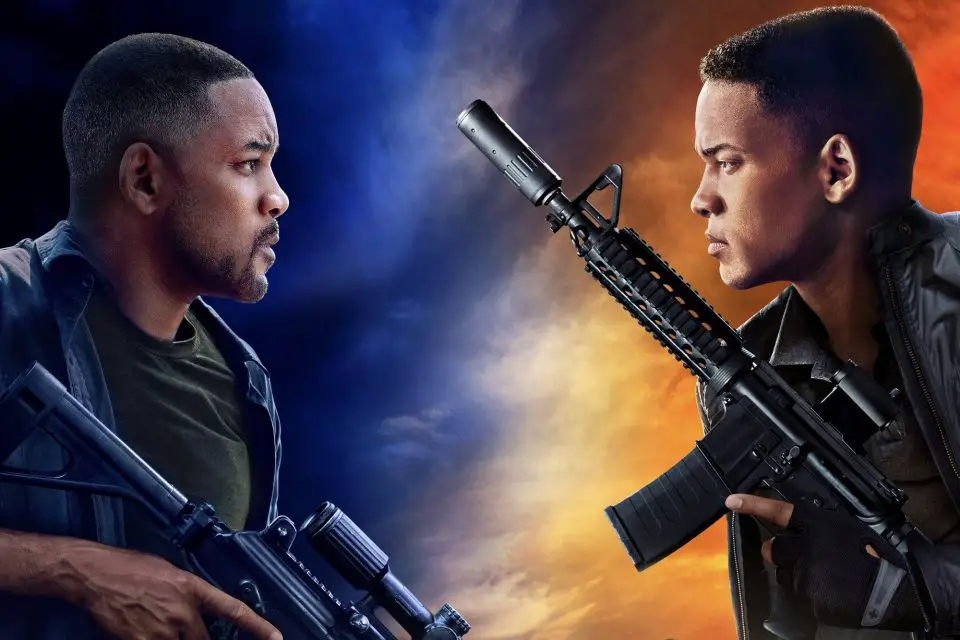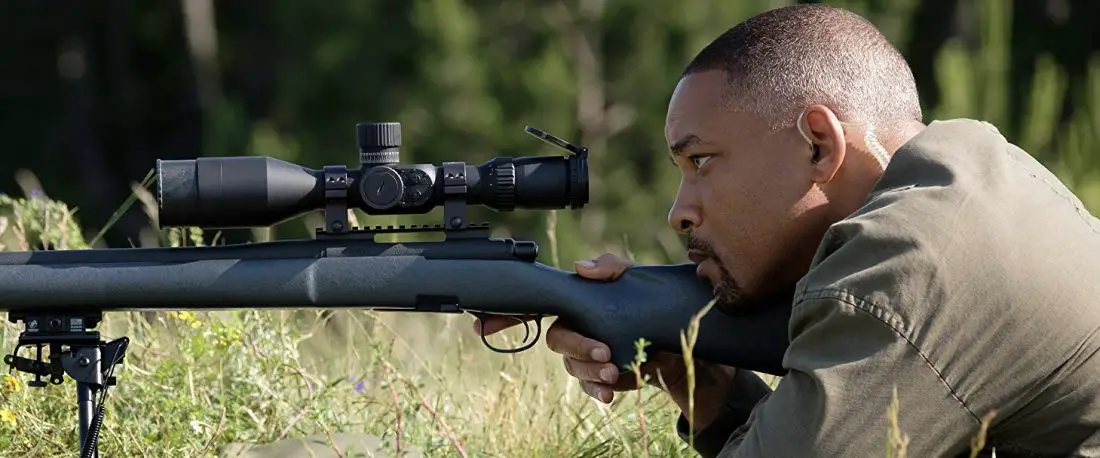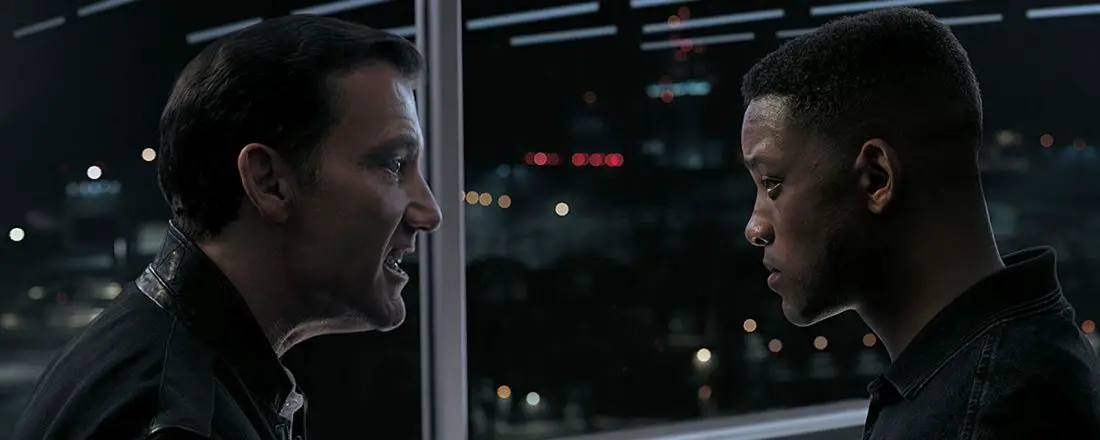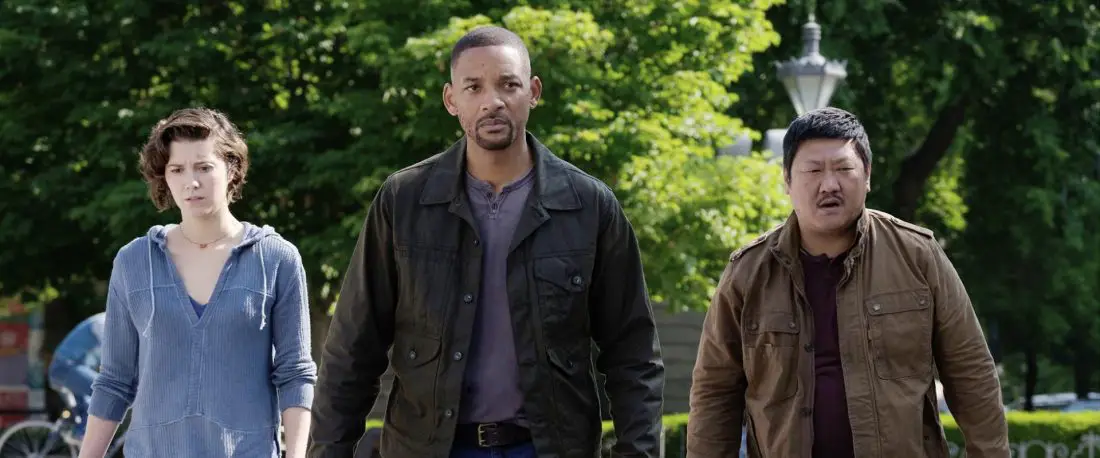‘Gemini Man’ Review: “Cutting-Edge Filmmaking In A Traditional Action Romp”

Film projects in which the director has input from the beginning are often good insights into their personality. However, film projects in which the director enters late in the game can be better at exposing their ingenuity. After all, it gives them more opportunities to experiment with crafting scenes since the script is all ready to go. Even with a flimsy script, the most fascinating director-for-hire projects carry enough unique energy to balance out their weaknesses. So it is with Gemini Man, the latest film from director Ang Lee, that we have a director-for-hire project that is never less than fascinating.
Much of that is due to the filmmakers capturing footage in the unconventional format of 3D at 120 FPS. This may not sound like much for those less attuned to technical specifications. Rest assured, though, that it makes for a lot in practice, even when projected at a compromised 60 FPS. Camera and character movements now have a sense of fluidness that the highest resolution cameras cannot capture.
Additionally, it gets a lot of mileage out of cinematographer Dion Beebe’s bright lighting choices. Most of all, the stereoscopic effect is superb at compensating for the image’s lack of contrast. Rarely does it cover itself in deep shadows like most movies, which turns out to be a great benefit for the 3D experience. Because of this, many dialogue scenes play out as if every actor has a tangible presence. During moments of exposition, Lee’s trademark close-ups make the facial expressions more realistic, which makes the dramatic beats stronger.
Not to mention, the film’s terrific action sequences rarely become incoherent thanks to a lack of motion blur. From the stellar motorcycle chase onward, the film’s High Frame Rate (HFR) solves many of action cinema’s common pitfalls. By the way, this includes the much-maligned “shaky cam” that arises thanks to the nonstop blur in 24 FPS. In all honesty, Lee’s work here refines the format in ways that movies like Peter Jackson’s The Hobbit could only dream of doing.
However, it would be unfair to label Gemini Man as a curio solely because of how it was shot. As it turns out, the material surrounding this cutting-edge filmmaking is a strange mix indeed. Reading through the central hook – Henry Brogen (Will Smith), an expert assassin, crosses paths with a dangerous clone of himself – it seems like familiar ground for a high-concept action movie. It is so familiar, in fact, that screenwriter Darren Lemke wrote the spec script back in the late 1990s. But for all that the hook promises, it surprisingly leans more into meditative drama than pulpy sci-fi spectacle. Admittedly, the movie has its fair share of visually spectacular moments. But they are mostly there to bring a striking de-aged version of Smith to life as Junior, Henry’s disillusioned clone.
Thanks to its premise, the film offers two characters with a sense of brokenness that permeates through all their actions. In the case of Henry, we have someone who regrets his life choices because of prioritizing his assassin career over milestones such as finding love and raising a child. In the case of Junior, we have someone who begins to form internal thoughts that conflict with those of his father figure Clay (Clive Owen). As such, they help expand the script’s exploration of soldiers struggling to find humanity.
Under the hands of most filmmakers, Gemini Man would crumble as it fails to blend the calmer character beats with the frantic action beats. But with Lee at the helm, it comes fairly close to working. After all, the shifting tones are not dissimilar to what he excelled at with the similarly moody and action-oriented Crouching Tiger, Hidden Dragon. The principal cast is solid at giving depth to their characters as well. Smith, in particular, is great at performing double duty as Henry and Junior. It also helps that the film frequently finds unique ways to thrust the audience into the characters’ struggles. In particular, there is a first-person POV drowning scene that is so crisp that it is arguably one of the most anxiety-inducing moments of 2019.
Sure, the script by David Benioff and Billy Ray quickly runs out of interesting things for characters like Danny (Mary Elizabeth Winstead) and Baron (Benedict Wong). In fact, without Wong’s delightful goofiness, Baron is nothing but a plot device that transports characters around the world. Still, it is reassuring that the supporting players are charming enough to counteract their withering presence in the story.
If only the act of underusing secondary characters was the script’s biggest downfall. To put it mildly, it undoubtedly needs a handful of additional drafts. The problems first arise in the clunky dialogue. In addition to Benioff and Ray straining to inject effective humor, the writers state the themes so clearly that it almost feels like it was written for children. In fact, “fear” is a word that characters say on a regular basis as the film grapples with Henry and Junior’s struggles.
Telegraphing the thematic material is to be expected for a noisy action picture, of course. But when combined with Lee’s deliberate and stately direction, the scripting flaws become more distracting than usual. What is more damaging than the words from people’s mouths, however, are the hints toward a more challenging narrative. Not to say that the hints themselves are awful by themselves. But it does itself no favors by blazing through several potentially interesting plot threads in the final act. For one thing, the climax develops Clay as someone who wants to change soldiers for a greater good… only to give up that thread so he can just be a generic villain.
Worse still, the path it takes to complete Junior’s character arc is downright cringe-worthy. It’s not enough this is the only time the Smith de-aging is more evocative of Henry Cavill’s CGI face in Justice League than The Fresh Prince himself. The final scene also has the nerve to indulge in a happy tone that fits horribly with the film preceding it. As a result, it would be a stretch to call Gemini Man 100% satisfying as a final product.
But watching it in 3D HFR, the flaws rarely overpower what is otherwise a terrific showcase for both Smith as a movie star and Lee as an action filmmaker. I have a mild suspicion that it would have been more conventionally good had it been made in the late 1990s. Just the thought of this movie being made by someone like Tony Scott, who actually worked with Smith on the terrific Enemy of the State, is enough to pump me up with excitement. Yet at this moment in time, seeing such a throwback of an action movie mixed with cutting-edge filmmaking remains quite a delight on its own terms. At the very least, it is far more worthy of your time than its middling reviews suggest.
7/10
Gemini Man is now playing in theaters.
The film stars Will Smith, Mary Elizabeth Winstead, Clive Owen, Benedict Wong, Douglas Hodge, Ralph Brown, and Linda Emond.








